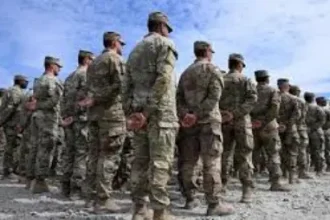United States President Donald Trump announced Tuesday that Israel has agreed to key terms for a proposed ceasefire in Gaza, but the fate of the deal now depends on whether Hamas will also give its approval.
Two senior administration officials confirmed that Hamas has yet to formally respond to the proposed truce.
Trump credited diplomatic efforts by Qatar and Egypt for advancing the agreement, which was presented to both parties earlier this week.
“My Representatives had a long and productive meeting with the Israelis today on Gaza,” Trump posted on his Truth Social platform. “Israel has agreed to the necessary conditions to finalize the 60 Day CEASEFIRE, during which time we will work with all parties to end the War. The Qataris and Egyptians, who have worked very hard to help bring Peace, will deliver this final proposal. I hope, for the good of the Middle East, that Hamas takes this Deal, because it will not get better — IT WILL ONLY GET WORSE. Thank you for your attention to this matter!”
According to reporting by CNN, Qatari officials presented a fresh 60-day ceasefire plan to both Israel and Hamas on Tuesday. The initiative was backed by the Trump administration and came after months of quiet diplomatic work led by Trump’s special envoy, Steve Witkoff, a source close to the talks revealed.
The proposal was delivered as Israeli Minister for Strategic Affairs Ron Dermer visited Washington for high-level discussions with U.S. officials. His trip overlapped with the rollout of the new plan, which seeks to revive stalled efforts to halt the violence in Gaza.
The latest effort follows Qatar’s recent involvement in facilitating a temporary truce between Iran and Israel, after a coordinated U.S.-Israeli military strike on Iranian nuclear infrastructure.
An earlier U.S.-supported ceasefire proposal was rejected by Hamas, but the revised version reportedly addresses the group’s previous objections. A source familiar with the matter stated that the updated plan includes a hostage-prisoner exchange, where Israeli captives would be released in exchange for Palestinian detainees during the ceasefire period.
The White House declined to comment on the specific contents of the new proposal, which became public shortly before Trump’s statement online.
Trump is expected to meet Israeli Prime Minister Benjamin Netanyahu next Monday, as internal debate intensifies within Israel over whether to accept a ceasefire or pursue further military operations in Gaza.
An Israeli military official told CNN that while Israel’s core war aims remain unmet, Hamas’ military strength has been severely weakened, limiting the effectiveness of additional strikes.
Netanyahu, speaking Sunday, suggested that Israel’s recent military actions inside Iran might have created leverage to negotiate the release of hostages still held in Gaza.
Trump also expressed confidence ahead of his upcoming meeting with Netanyahu, telling reporters that he plans to take a firm approach during the talks and is hopeful about brokering a deal.
“He wants to. I can tell you he wants to. I think we’ll have a deal next week,” Trump said.
Despite the progress, major obstacles persist. Hamas continues to demand a permanent ceasefire and the right to retain control in Gaza—conditions that Israel has repeatedly rejected. One source told CNN that while Hamas faces mounting pressure, it may be reluctant to agree to a short-term truce unless broader political demands are met.
Even so, there are indications that Hamas may be willing to show flexibility under certain conditions, the source added.











